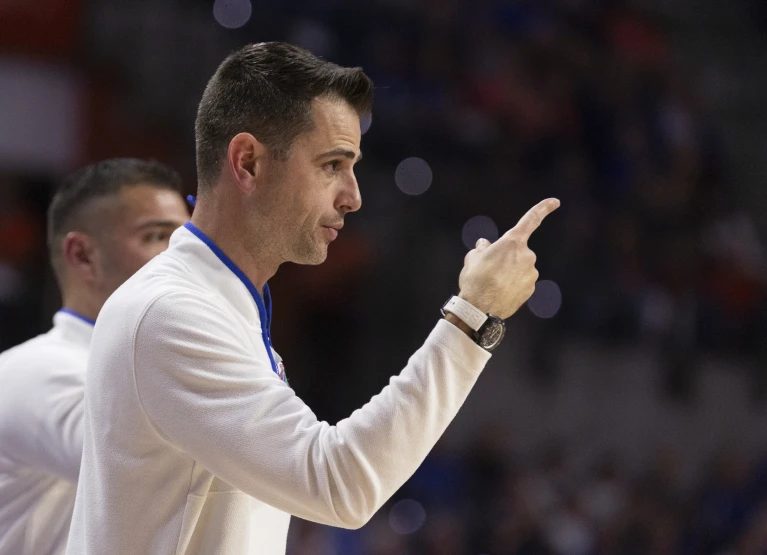The state of Florida may enforce a law eliminating general education courses that teach “identity politics” at Florida’s institutions of higher education pending resolution of a lawsuit filed by professors, a federal judge has ruled.
In January, the American Civil Liberties Union of Florida filed suit on the professors’ behalf alleging that SB 266, a 2023 law limiting general education course classifications and funding for diversity, equity, and inclusion initiatives, harmed the professors’ academic ambitions. General education courses are required for students to graduate.
Days after a preliminary injunction hearing in Tallahassee in front of U.S. District Chief Judge Mark Walker, he ruled Wednesday that the professors had not established they would suffer any harm.
“This ruling is disappointing, but also offers a clearer path forward to prove this law is unconstitutional,” said Bacardi Jackson, executive director of the ACLU of Florida in a news release. “The law is a blatant effort to control the content of higher education, muzzle Florida’s scholars, and erase perspectives the state finds politically inconvenient. We remain committed to fighting alongside faculty, students, and the broader academic community until this undemocratic law is struck down.”
Among the plaintiffs is University of Florida political science professor Sharon Austin, who complains she was denied funding to present at a 2024 conference hosted by Diversity Abroad, which the school had paid for her to present at in 2023. The school specifically cited SB 266 in refusing to pay for her to appear subsequently, the suit alleges.
“As for Plaintiff Austin, her declaration demonstrates that she has already suffered a denial of state funding to attend conferences in 2024. However, to obtain prospective relief, she must demonstrate an unambiguous intention to seek funding to attend conferences at a reasonably foreseeable time in the future. That she has not done,” Walker wrote.
Professors who have had their courses removed from general education requirements, or fear it may happen, say their injury is chilled speech and potential repercussions in post-tenure review.
“To the extent these Plaintiffs claim their classroom speech associated with courses for which they have no stated plans to teach at a reasonably foreseeable time in the future will be chilled, such a hypothetical future chill is both too remote and speculative to amount to a cognizable injury in fact,” Walker wrote.
ACLU will continue
The plaintiffs allege viewpoint discrimination under the First Amendment; that the law is over-broad; and that it violates Florida’s Campus Free Expression Act.
State University System Chancellor Ray Rodrigues said in January that the law has helped address a Gallup poll that found “political agendas” as Americans’ Number One reason they have lost confidence in higher education.
Education Commissioner Manny Diaz Jr. said the law helps students who can be “overwhelmed by the number of courses that are out there,” and that students can take whatever classes they wish, “but the easier we can make it for them when it comes to general education and making sure that they’re getting what they need there I think is very important.”
Walker did not rule on merits of the underlying case and the ACLU said it will continue its challenge.
“Plaintiffs’ evidence does not demonstrate that any Plaintiff faces an imminent injury — namely, chilled speech — that is traceable to any Defendant’s enforcement of the general education requirements,” Walker wrote.
“For what it’s worth, Plaintiffs’ existential concerns about the survival of their academic departments and the future viability of their areas of expertise in the state of Florida are certainly understandable. However, these concerns, as described at length in Plaintiffs’ declarations, do not give rise to a concrete, imminent, and non-speculative injury in fact sufficient to permit Plaintiffs to seek a preliminary injunction against Defendants’ enforcement of the general education requirements.”
___
Jay Waagmeester reporting. Florida Phoenix is part of States Newsroom, a nonprofit news network supported by grants and a coalition of donors as a 501c(3) public charity. Florida Phoenix maintains editorial independence. Contact Editor Michael Moline for questions: [email protected]
Post Views: 0

 Entertainment8 years ago
Entertainment8 years ago
 Politics8 years ago
Politics8 years ago
 Entertainment8 years ago
Entertainment8 years ago
 Entertainment8 years ago
Entertainment8 years ago
 Tech8 years ago
Tech8 years ago
 Tech8 years ago
Tech8 years ago
 Tech8 years ago
Tech8 years ago
 Politics8 years ago
Politics8 years ago











